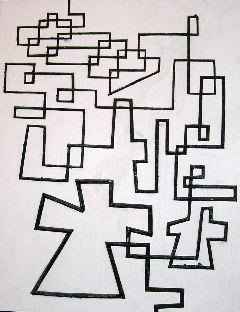David Schubert, 1913-1946. An Appreciation by T. Weiss and Renée Weiss
From Quarterly Review of Literature, 30th Anniversary, Poetry Retrospective,
Volume XIX
What a beautiful editorial
In April of this year, poetry lost one of its likeliest, if inadequately appreciated, writers. Despite the rapid recognition his work won from some of the more discerning, David Schubert knew consistently the indifference of much of even the sophisticated reading world; generally his poems were too quick, intense, and exacting for the heavy-lidded critics. . . . .
But despite the ruthless standards he imposed upon himself, Schubert's last years produced a remarkable body of poetry. The following examples, drawn from that unpublished work, should apply demonstrate its excellence. Immediately perceptible is its vigorous dimensionality. In a time when poetry seems to be ashamed of itself, anxious to slip by as huddled, anonymous, and pokerfaced as possible, one can especially delight in his poems' bulk of color, action, and lambency. Not that this poetry is naive, ignorant of or
blind to the human havoc of our day. On the contrary, Schubert worked constantly within that havoc. His earlier poems are chiefly objective––that is, objects, the properties of his arduous landscape, almost completely contain his purposes. But even our desperation becomes a somber gaiety, the more-than-melancholy amusement a Charlie Chaplin embodies.
His later poems remark the widening abyss. What is astonishing is this poetry's outspoken fearlessness before his grief and his unswerving fidelity to his predicament.
Even here we discover a wry radiance, an additional lucidity in the midst of torment. Apparently he could bear this torment best by gripping it in language.
As we go deeper into the abyss, what further impresses is his always increasing simplicity, certainty, and selfhood, something we seem to have nearly lost: a direct appeal saintlike in its unassumption. The stamp of his personality has so grown, it can afford, at will, to ignore or to consider itself. He contexts his world, humanizes, and names it. There are Schubert elms, restaurants, caterpillers; the world begins again in the middle of a tenament. What is stone before the flowering human wish? So in his major objective correlative, the metropolis, Shubert impressively reclaims the cliché. He keeps the metropolis in all its drabness; yet this drabness, by the irradiation of his love, by his country-quiet, fragrant presence, becomes total poetry. Finally, we see that even his night is luminous; a human being has been here. And as he moves down our dusty road, "in a double-breasted business suit," we know how nobly he as wrested "Out of failure some thing shining."

